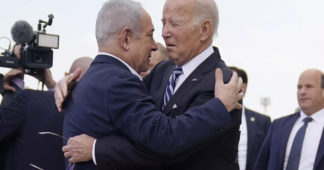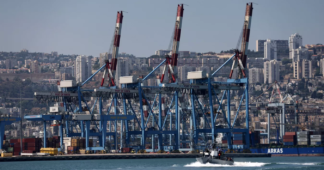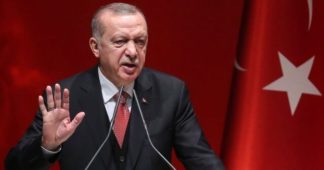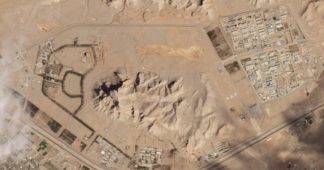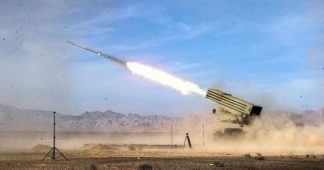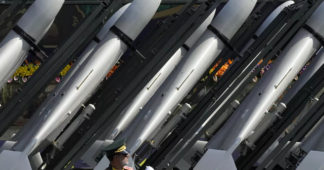By
Apr. 16, 2024
Israel has managed to shift international focus from its controversial actions in Gaza and the West Bank to the potential for conflict with Iran, a scenario Tehran has feared since 7 October. When Muhammad al-Deif, the military leader of Hamas, called on the “Axis of Resistance” to engage fully in the conflict against Israel, all the members remained cautious, aiming to keep the global focus on the Palestinian cause, which enjoys widespread international support, rather than on Iran and Hezbollah, which have long been portrayed negatively.
When Iran retaliated for the destruction of its consulate in Damascus, the United States led the formation of a regional international coalition (US Air Force and ground bases, UK, France, Jordan and NATO ships) to contain the fallout. This limited the range of ballistic missiles so that only a few could penetrate the defences, including the several Israeli layers of interception missiles. This strategic intervention gave Israel significant moral support and reinforced its confidence in strong defences should it decide to confront Iran directly. This support came despite international condemnation of Israel’s crimes in Gaza and amid US and Western efforts to prevent a full-scale multi-fronts war in the Middle East.
As Israeli leaders consider how to respond to Iran’s actions without triggering a cycle of retaliatory strikes that could escalate into a wider conflict, Iran has made clear that it would respond swiftly and with greater force to any further Israeli strikes using its advanced missiles and drones.
Leading Iranian sources have asserted that “any Israeli response would be proportionate: a military strike would be met with a strike on a similar target in Israel, and a nuclear strike would be met in kind. Iran has also indicated that it has advanced weapons that would not be used in the first calculated response. This imminent retaliation, according to the sources, will not only be reciprocal but significantly more destructive, designed to escalate in intensity in response to Israeli actions. Tehran has rejected all international appeals for de-escalation, arguing that such efforts should instead be directed at Israel. (Prime Minister Benjamin) According to these sources, Netanyahu would not proceed with military action without the implicit support of the United States, which they claim underwrites Israeli assertiveness.”
The Iranian military is preparing to deploy the third generation of its advanced weapons arsenal within a tight timeframe, having developed numerous scenarios and a targeted response plan based on the nature and location of an Israeli strike.
Meanwhile, there is palpable concern among the Iranian people, some of whom remember the last major conflict with Iraq, which ended in August 1988. Despite this, the Islamic Republic has not taken extensive preventive measures such as sounding the alarm, closing airspace, halting daily operations in schools, universities and government offices, and maintaining a state of military readiness throughout the country without disrupting civilian life.
Iran is confident in its ability to withstand potential attacks because of its vast geography covering 1,650,000 square kilometres. This expansive area allows it to absorb significant losses, starkly contrasting to Israel’s occupied geographical “curse” and footprint of 22,000 square kilometres—comparable to one of Iran’s smallest provinces, Ilam.
Given the lack of success in Gaza, there are doubts among Israeli officials about achieving strategic results against Iran, which is prepared for a frontal confrontation. Former Israeli army commander and current war-cabinet minister Gadi Eisenkot acknowledged: “Israel’s advanced military and technological capabilities, which are unparalleled worldwide. Despite these advantages, we have failed to defeat one of our most vulnerable and weaker enemies after six months of war. The most severe damage is that the results of the war will not be felt now but in a few years, suggesting a delay in realising the full impact.
The United States has provided Israel with substantial and extraordinary military aid, unprecedented since the Second World War. However, Israel remains wary of entering into a full-scale confrontation without explicit American backing, given the potential for uncontrollable escalation. As a result, Prime Minister Benjamin Netanyahu is advocating a ‘wise response’ that avoids triggering a regional war involving Iran’s allies in Lebanon, Syria, Iraq and Yemen, which have organic ties to the Islamic Republic and have historically challenged Israel’s military superiority.
Iran has broken away from the established rules of engagement that underpinned Israel’s ‘battle between wars’ doctrine, which historically included short battles, covert and security strikes, operations on the high seas, and actions against intelligence centres in Iraq and Syria. The shift to open warfare and confrontation was precipitated by Israel’s aggressive move to destroy the Iranian consulate in Syria, violating the 1961 Vienna Convention. As a result, America is acutely aware that Prime Minister Netanyahu may willingly drag it into the conflict, secure in the knowledge that the US will not abandon Israel.
American officials, including State Department spokesman Matthew Miller, have reiterated their bond and unwavering support for Israel’s security, “even when Israel takes actions that the US disapproves of.” This situation has demonstrated Israel’s dependence on having a constant “watchdog” to protect it, even from its missteps.
Iranian President Ebrahim Raisi has stressed that “Western support for Israel is fuelling regional tensions.” He has declared that Iran will ‘retaliate within minutes to any military action against it in a massive, comprehensive and immediate manner’. This response raises the question of whether Israel, faced with the prospect of more intense and widespread missile strikes and the opening of additional fronts, is urgently seeking an exit strategy to de-escalate the situation and mitigate the impact on other potential battlefields.
The White House and its national security spokesman, Admiral John Kirby, openly dismissed the impact of the Iranian strike, describing the effective interception of ‘99% of missiles and drones’ as an exaggerated claim and the Iranian action as mere ‘grandstanding’ that did not warrant a response. This perspective provided Prime Minister Netanyahu with a rhetorical ‘ladder’ to climb from his precarious position amid mounting domestic pressure and calls for de-escalation from the international community.
Domestically, Netanyahu faces conflicting pressures from his government and the coalition that keeps him in power. Defence Minister Benny Gantz and other political rivals within the Likud party are pushing for a more aggressive stance towards Iran, exacerbating Netanyahu’s political dilemma. Gantz has managed to sway more than ten of Netanyahu’s Likud party members to his side, effectively weakening Netanyahu’s influence. Similarly, Defence Minister Yoav Gallant, who harbours ambitions to lead the Likud and replace Netanyahu, advocates an attack on Iran despite his perceived lack of charisma. Yair Lapid, the opposition leader, issued a stark warning: “Netanyahu will lead Israel to ruin until his government collapses.
Against this backdrop of domestic and international pressure, Netanyahu is navigating a complex landscape, seeking the optimal decision to maintain power and avoid the pitfalls that have mounted since 7 October. The Iranian strike adds to Netanyahu’s already precarious situation.
On the international front, while the US agrees with Israel that Iran poses a significant threat to its interests and hegemony in the Middle East, there is a divergence in the approach to be taken. The preferred US strategy is to ‘delicately’ manage the Iranian challenge through sanctions, intelligence operations, and possibly fomenting domestic unrest in Iran rather than engaging in direct military confrontation. This nuanced approach reflects a broader strategy of carefully gauging Iran’s potential responses as the international community awaits Tehran’s next move following the inevitable Israeli response. The situation has thus reached a point where both parties are on equal footing, with the next move decisively in Israel’s court
We remind our readers that publication of articles on our site does not mean that we agree with what is written. Our policy is to publish anything which we consider of interest, so as to assist our readers in forming their opinions. Sometimes we even publish articles with which we totally disagree, since we believe it is important for our readers to be informed on as wide a spectrum of views as possible.
